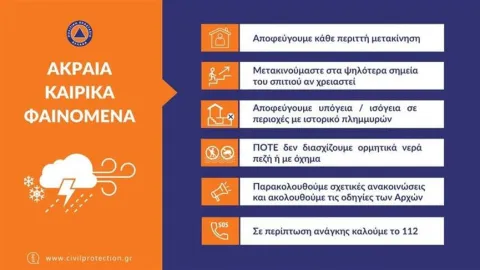
It is the policy of the University of the Peloponnese that members of the Academic Community remain safe and free from health hazards during their work and stay at the University. (LAW 3850/2010 - FEK A-84/2-6-2010).
For this University:
- It shall make arrangements to ensure safety and the absence of health risks in connection with the use, handling, storage and transport of articles and substances.
- Provides information, instruction, training and supervision where necessary to ensure the health and safety at work of employees and students.
- Maintains any workplace in its possession in a condition that is safe and free from health hazards .
- Provide the relevant protective equipment necessary for the health and safety at work of employees and students.
- Encourages staff to set high standards of health and safety by personal example so that graduates adopt an attitude which assumes good health and safety practice.
- Encourage educational units (faculties, departments) to implement and improve health and safety regulations.
The University of the Peloponnese supports and promotes actions for the support of students, their intellectual cultivation, their personal development and the care of their health.
The aim is to provide quality services/benefits related to food, housing, student housing allowance, scholarships, Erasmus mobility programmes, sports activities, support for students with disabilities and health care, always taking into account the current legislation of the state and the decisions of the University's Administrative Council.
The Regional Departments of the Directorate of Studies and Student Affairs Patras / Kalamata of the University of the Peloponnese include the Health and Social Care Offices, which aim to provide primary care to the academic community.
The Care Offices have the appropriate pharmaceutical and sanitary equipment for dealing with emergencies and are staffed by health professionals specifically: in the Patras Office, the Medical Office (ground floor of building B), which is staffed by a doctor (specialist pathologist) and a qualified nurse and in Kalamata the Office (medical office ground floor of the old buildings of the Eth 90 campus Antikalamos), which is staffed by two nurses.
According to the provisions of Law 4452/15-02-2017 (A' 17), article 31, par. 3 "undergraduate and postgraduate students and doctoral candidates, who have no other medical and hospital care, are entitled to full medical and hospital care in the National Health System (NHS) with coverage of the relevant costs by the National Organization for the Provision of Health Services (NPOH), in accordance with article 33 of Law. 4368/2016 (A' 83)" only by using their S.S.N.
Services and Benefits
- In the Patras clinic the doctor prescribes only to members of our academic community
- The provision of health care services is available to all members of the Academic Community, students, faculty members, members of the teaching and research staff, members of the teaching and research staff, faculty members.
- Students in need of health care may come to the Health Services facility daily during working days and hours.
- Provide first aid to student incidents such as fainting spells, injuries, contusions, burns, insect bites, allergies, viral conditions, low-risk regular and emergency incidents.
- High-risk emergencies are sent to the hospital by the ambulance service, accompanied by the nurse or doctor, depending on the severity.
Liaison with hospitals & health stations in the area, for the seamless response to incidents. - Liaison with social institutions, social welfare, psychologists and doctors of relevant specialties who will provide their services to vulnerable groups of students and students with disabilities.
- Cooperation with centres for addiction prevention and mental health promotion in the context of free counselling and psychological support for students seeking assistance.
- Health promotion activities for the academic community through the organisation of workshops, information events, clinical tutorials, etc., as well as experiential workshops for students.
- Actions of social content, raising awareness with voluntary blood donations in the context of strengthening the University of Peloponnese Blood Bank and solidarity with fellow human beings.
- Keeping a record of visits of students and staff regarding the reason for their visit and further actions.
- Provision and supply of the medical clinics with the permitted pharmaceutical and sanitary material and the necessary instruments.
- Placement of 11 Automatic External Defibrillators in Faculties and Departments of the University: 5 in Tripoli (Department of Economics, Department of Nursing, Department of Informatics and Telecommunications), 1 in Patras ( School of Engineering), 2 in Sparta ( Department of Digital Systems , Department of Sports Organization and Management), 2 in Kalamata (Antikalamo, School of Humanities and Cultural Studies),1 in Nafplio ( Department of Theatre Studies). After their placement, training for their use was provided.
- Control of the cleanliness and hygiene of the public areas of the facilities.
- Control of the restaurants and canteens
- Recommendation of measures to promote and ensure health.
Contact
Patras: +30 2610 369 129, +30 2610 369 130
Anastasopoulou Ioanna Email: ioanasta@uop.gr
Karatzaferi Athena Email: akaratzaferi@uop.gr
Kalamata: +30 27210 45 190, +30 27210 45 171, +30 27210 45 290
Bampali Stavroula Email: s.mpampali@uop.gr
Kouzi Niki Email: n.kouzi@uop.gr
EMERGENCY RESPONSE PROTOCOL AT THE UNIVERSITY OF PELOPONNESE
| National Emergency Help Centre | tel. 166 for health problems |
| Fire Service | tel. 199 for fire |
| Single Emergency Number | 112 ( free of charge from fixed and mobile phones in all EU countries. Calling this number automatically connects you to the emergency services. |
| Poison Control Centre | tel. 210 7793777 for poisonings |
- Victim Collapse
-
Image
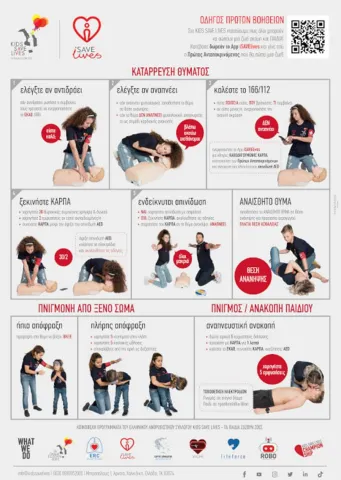
- Cardiopulmonary Resuscitation
-
Image
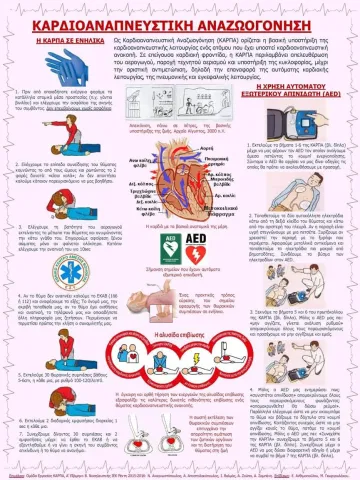
- Earthquake and Protection
-
Image
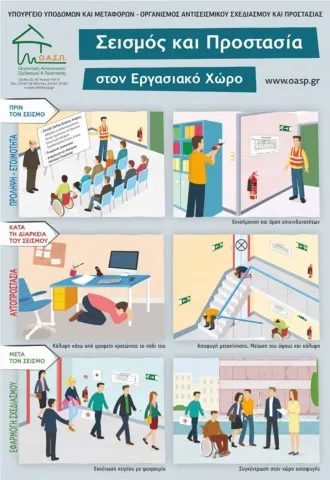
- Hygiene rules
-
Image
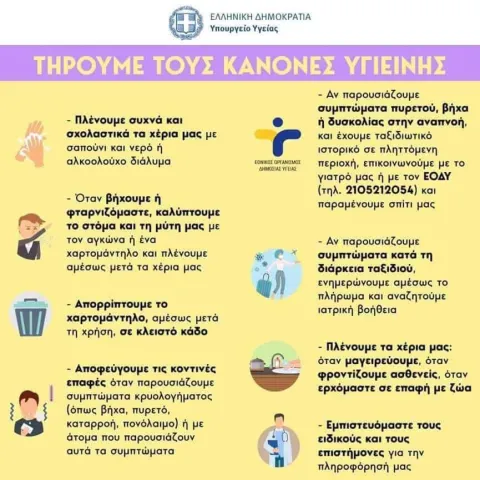
- Extreme Weather Events
-
Image
